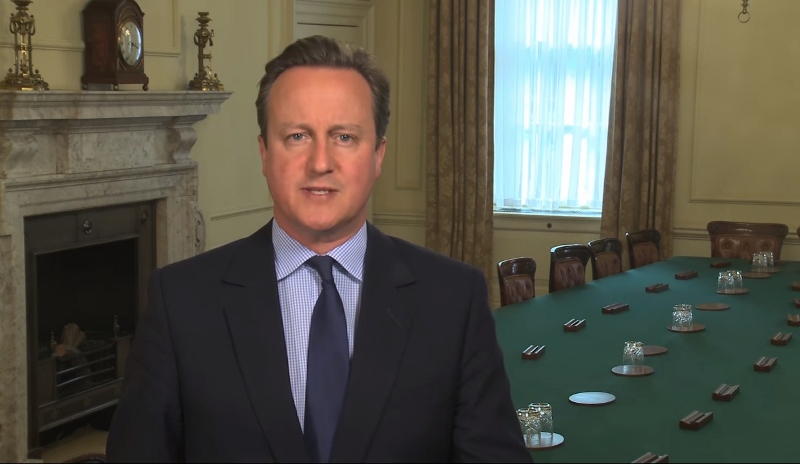
On Thursday 23rd June 2016, the British public will vote to decide whether we stay in the EU or whether we leave as the date for the referendum arrives.
A historic result could alter the way of life for so many people in the UK and overseas but do we actually know what could change if we vote to leave this summer?
We asked the people of Harehills if they understood what the EU referendum was about. Out of the 30 people we asked, 18 people admitted they were out of the loop.
Comments from members of the public ranged from “I don’t know and I don’t care” to “it doesn’t make a difference to me if the UK stays in the EU.”
To make sure we are all on the same page when it comes to politics, here’s what you need to know.

Firstly, what exactly is the EU?
The European Union grew out of a wish for peace in a war-torn and alienated continent.
When World War II ended, France and Germany came up with a plan five years later to make sure their two countries would never go to war against each other again. In 1950, six nations signed a deal to pool their coal and steel resources.
In 1957, a treaty signed in Rome created the European Economic Community (EEC) – or, the foundations of today’s European Union. In the first wave of expansion in 1973, the UK was one of three new members to join. Within the 28 member states today, the total population is more than 500 million. The EU also has its own legal and economic systems.
What is Brexit?
Brexit is the combination of two words, ‘Britain’ and ‘exit’ and refers to a possible British exit from the 28 nation bloc of the EU.
Prime Minister David Cameron is holding a referendum on 23rd June as to whether the UK should stay in – or leave- the EU. It was recommended by the government in September 2015 that the question should be amended to: “Should the UK remain a member of the EU or leave the EU?”
So, should we stay or should we go? According to recent polls, the public are split on the issue.
Leave the EU?
Some people have argued that the UK is being held back by the EU which imposes too many rules on businesses and charges billions of pounds in membership fees for ‘not much in return’. Work and Pensions secretary Iain Duncan Smith said staying in the EU ‘leaves [the UK’s] door open’ to Paris-style terrorist attacks. Some also think that Brussels has too much say over UK laws. Another argument for leaving is so that Britain can regain full control of its borders and reduce the number of immigrants coming here to work. Others reject the idea of an ‘ever closer union’ and do not like the goal of creating a ‘United States of Europe’.

Stay in the EU?
David Cameron wants Britain to stay in the EU now he has got some powers back from it. 16 members of his cabinet also back his move. The Conservative Party has pledged to be neutral in the campaign whilst the Labour Party, SNP and the Lib Dems are all in favour of staying in. The UK gets a big boost from EU membership, and staying would make selling products to other EU countries easier. One of the main principles of the EU is ‘free movement’ which means you don’t need a visa to go and live in another EU country. Some argue the flow of immigrants helps pay for public services and fuels our economic growth. Others argue that the UK’s status in the world would be damaged by leaving and that the country is more secure as part of a 28 nation bloc and that if we abandon the EU we will lose our influence on the world stage.
Kamran Hussain, who is leading the EU Referendum Campaign for Yorkshire and the Humber Liberal Democrats, thinks that Britain should stay in Europe.
He said: “[I] believe that we are stronger, safer and better off in Europe than we would be out on our own.
“For centuries, Britain has been a powerful trading nation with a dynamic economy at the centre of European and world affairs […] We get an average of £24.1 billion of investment into Britain per year from Europe and it’s estimated 3-4 million jobs in Britain are linked directly to trade with the rest of Europe.
“People are able to work, travel and learn within the EU. It gives us all the best chance to succeed.
 “The environment is better tackled together with the EU and security is also improved within the EU.”
“The environment is better tackled together with the EU and security is also improved within the EU.”
“Our partnership with the EU is worth £3000 to every household in the UK. We’ve got the EU arrest warrant which allows us to deal with cross border crimes and terrorism.
“If we leave the EU we still have to work with our EU neighbours but we will be unable to have an input.”
Being part of Europe also means cheaper prices in our supermarkets, cheaper flights to Europe and lower phone charges when travelling.”
Minister of State for Employment, Priti Patel, said that UK-India relations would receive a huge boost if the UK left the EU….
“Over the last 40 years the UK’s membership of the EU has acted as a barrier to developing trade and investment partnerships with the rest of the world, including India. Remaining within the EU will mean the UK will be in a weaker position to forge the closer trading ties that would benefit the Indian and UK economies.

“Also, one of the reasons why our trading links with India were inadequate when we came to Government in 2010 was because of the focus that Britain had given to trade within Europe as a result of membership of the EU.
“Billions of pounds that could be invested in creating new jobs and growth are instead swallowed up by [EU] regulations. Leaving the EU will mean that we can set our own regulations for business and cut their costs.”














